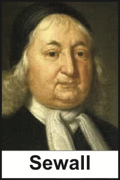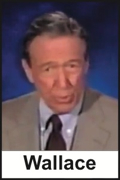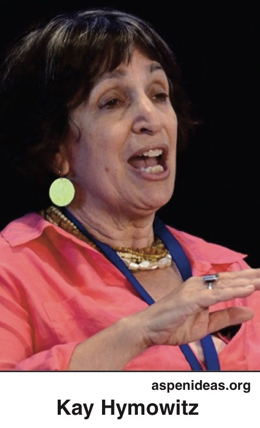Rascals case in brief
In the beginning, in 1989, more than 90 children at the Little Rascals Day Care Center in Edenton, North Carolina, accused a total of 20 adults with 429 instances of sexual abuse over a three-year period. It may have all begun with one parent’s complaint about punishment given her child.
Among the alleged perpetrators: the sheriff and mayor. But prosecutors would charge only Robin Byrum, Darlene Harris, Elizabeth “Betsy” Kelly, Robert “Bob” Kelly, Willard Scott Privott, Shelley Stone and Dawn Wilson – the Edenton 7.
Along with sodomy and beatings, allegations included a baby killed with a handgun, a child being hung upside down from a tree and being set on fire and countless other fantastic incidents involving spaceships, hot air balloons, pirate ships and trained sharks.
By the time prosecutors dropped the last charges in 1997, Little Rascals had become North Carolina’s longest and most costly criminal trial. Prosecutors kept defendants jailed in hopes at least one would turn against their supposed co-conspirators. Remarkably, none did. Another shameful record: Five defendants had to wait longer to face their accusers in court than anyone else in North Carolina history.
Between 1991 and 1997, Ofra Bikel produced three extraordinary episodes on the Little Rascals case for the PBS series “Frontline.” Although “Innocence Lost” did not deter prosecutors, it exposed their tactics and fostered nationwide skepticism and dismay.
With each passing year, the absurdity of the Little Rascals charges has become more obvious. But no admission of error has ever come from prosecutors, police, interviewers or parents. This site is devoted to the issues raised by this case.
On Facebook
Click for earlier Facebook posts archived on this site
Click to go to
Today’s random selection from the Little Rascals Day Care archives….
Click for earlier Facebook posts archived on this site
Click to go to
Today’s random selection from the Little Rascals Day Care archives….
Hit-and-run prosecutors, therapists don’t look back
 Feb. 24, 2012
Feb. 24, 2012
“Samuel Sewall was one of nine judges appointed to hear the Salem witch trials in 1692.
“Five years later he stood up in church in front of the congregation while the minister read out his apology.
“None of his colleagues on the bench followed suit.”
– From “Judge Sewall’s Apology: The Salem Witch Trials and the Forming
of an American Conscience” by Richard Francis (2005)
No regret – or even doubt! – has ever been expressed by Judge Marsh McLelland, by prosecutors H.P. Williams, Nancy Lamb or Bill Hart or by the misguided therapists who served not the children but the Little Rascals prosecution team.
Do they ever give a passing thought to the lives they ruined?
Chandler’s imprisonment: cruel and unusual
April 28, 2014
Average number of months served by inmates in state prisons…
■ for sexual assault: 35
■ for homicide: 71
■ for rape: 65
Number of months served by Andrew Junior Chandler for an imaginary crime: 324.
A rare chance to watch the story unfold
 May 20, 2013
May 20, 2013
The day-care ritual-abuse era generated a wealth of words, many of which have been cited here. Aside from the epic “Innocence Lost,” however, little video evidence remains.
Just made available on our Bookshelf of Case Materials is the hour-long 1999 CBS documentary “Child Sex Scandals: Modern Day Witch-Hunt?”
Part of correspondent Mike Wallace’s “20th Century” series, it includes basic coverage of the McMartin, LIttle Rascals and Kelly Michaels day-care prosecutions, as well as the closely-akin “recovered memory” movement.
Especially salient are the 30-second comments from key combatants in the opinion arena such as Maggie Bruck, Roland Summit, Elizabeth Loftus, and Mark Pendergrast.
‘Antifeminism’ to blame? Not so fast, Mr. Beck
 Aug. 24, 2015
Aug. 24, 2015
“(Richard) Beck is generally restrained in his narrative, letting the details pile up to a well-deserved indictment of the many players in the ‘moral panic.’ But in explaining how these fever dreams managed to seize the national imagination, he does a little witch-hunting of his own. The frenzy, he tells us, was a backlash by family-values conservatives to the social changes around them. It was a period of ‘an intense reactionary antifeminism.’
“This is an inexcusably partial interpretation. From Beck’s own evidence, feminists themselves were vital players in the hysteria. Gloria Steinem donated money to the McMartin investigation, and Ms. Magazine ran a 1993 cover article ‘BELIEVE IT! Cult Ritual Abuse Exists,’ even though, by that time, the general public had grown increasingly skeptical of the idea.
“In part because of her aggressive pursuit of child abusers – and conviction of a number of people later exonerated – a relatively unknown Dade County state attorney named Janet Reno was picked by President Clinton to become the nation’s first female attorney general. According to Debbie Nathan and Michael Snedeker, the authors of ‘Satan’s Silence,’ (Kee) MacFarlane had been a lobbyist for NOW before she set about terrifying the children of Manhattan Beach.
“With his partisan recounting of the child abuse panic of the 1980s, Beck turns what could have been a careful history about one facet of the nation’s exhausting culture wars into one more illustration of them.”
– From “ ‘We Believe the Children,’ by Richard Beck” by Kay Hymowitz in the New York Times Sunday Book Review (Aug. 21, 2015)
I’m posting this criticism of Beck’s book – from an otherwise laudatory review – mostly for archival purposes. My own interest lies less in the tangled roots of the day-care panic than in its results: defendants wrongfully incarcerated, children profoundly misguided and therapists and prosecutors unjustly unscathed.











0 CommentsComment on Facebook